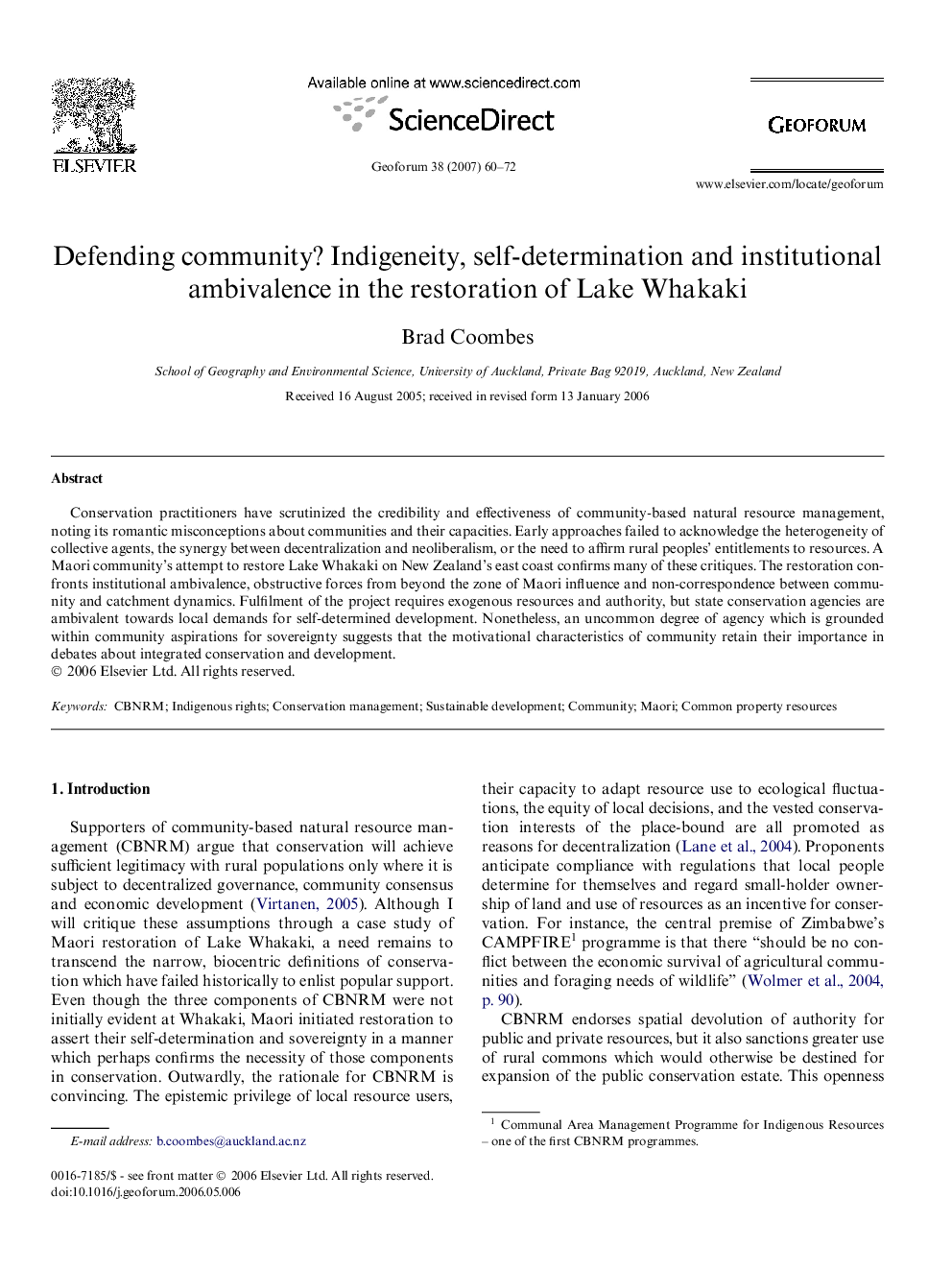| Article ID | Journal | Published Year | Pages | File Type |
|---|---|---|---|---|
| 5075050 | Geoforum | 2007 | 13 Pages |
Abstract
Conservation practitioners have scrutinized the credibility and effectiveness of community-based natural resource management, noting its romantic misconceptions about communities and their capacities. Early approaches failed to acknowledge the heterogeneity of collective agents, the synergy between decentralization and neoliberalism, or the need to affirm rural peoples' entitlements to resources. A Maori community's attempt to restore Lake Whakaki on New Zealand's east coast confirms many of these critiques. The restoration confronts institutional ambivalence, obstructive forces from beyond the zone of Maori influence and non-correspondence between community and catchment dynamics. Fulfilment of the project requires exogenous resources and authority, but state conservation agencies are ambivalent towards local demands for self-determined development. Nonetheless, an uncommon degree of agency which is grounded within community aspirations for sovereignty suggests that the motivational characteristics of community retain their importance in debates about integrated conservation and development.
Keywords
Related Topics
Social Sciences and Humanities
Economics, Econometrics and Finance
Economics and Econometrics
Authors
Brad Coombes,
